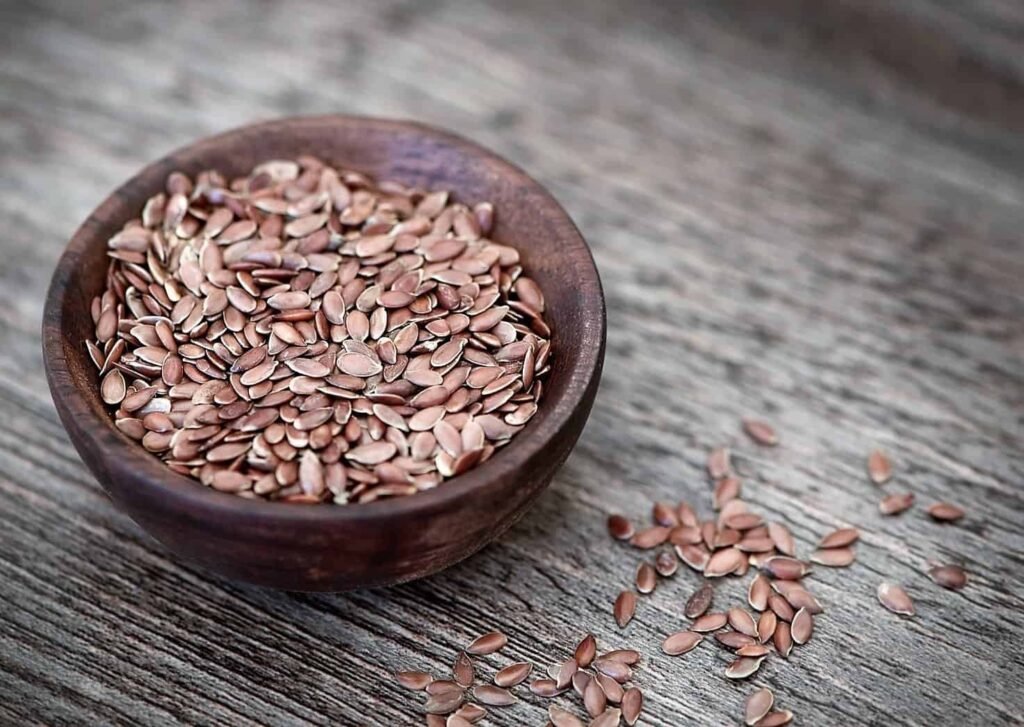My hairstylist told me how one of her clients grew a full head of hair in 3 months.
Her client had thin hair and a visible scalp. She often uses extensions to make her hair look thicker.
Then, one day, when the weather was fine, she came to have her hair cut, and her hair was not thinning.
But hair without wigs looks healthier and thicker.
How did this happen? The barber was curious. What did you do? Did you get a hair transplant or something? Or plasma therapy?
No, the client said. She said the only thing she wanted to do was eat a tablespoon of flaxseed. That’s it. Nothing else has changed. Her hair became thick and firm.
Do you want to know if flaxseed has the advantage of promoting hair growth?
Flaxseed has three benefits for growing head-to-head
Flaxseed is a lovely little brown or golden seed. They are known for their high content of healthy fatty acids. Especially if you’re a vegetarian and don’t eat fish, flaxseed is one of the richest plant sources of omega-3.
So, how is omega-3 good for hair, and why should you eat flaxseed?

Flaxseed is rich in Omega-3 fatty acids.
Right now, omega-3s are gaining traction in the healthy eating world. This is because omega-3s reduce inflammation, which can lead to many diseases and even hair loss.
Flaxseed contains an omega-3 fatty acid called alpha-linolenic acid (ALA), which has anti-inflammatory properties. Therefore, it can have a beneficial effect on hair growth.
Moreover, if your scalp is dry and flaky, ALA can improve moisture and reduce irritation and redness.
Flaxseed is a hormonal balance
It is important to note that all plants contain bioactive compounds called lignans. But flaxseed includes 100 times more lignans than any other food.
Lignans are fascinating. They serve a dual purpose in our bodies.
They are potent antioxidants. As you probably know, antioxidants are vital in mopping up harmful molecules called free radicals, which can damage hair follicles and affect hair growth.
In addition, lignans help balance estrogen. Therefore, when too much estrogen circulates in the body, it acts as an estrogen blocker, reducing its dominance. Too much estrogen can lead to irregular periods, premenstrual syndrome, weight gain, hair loss, and more.
Conversely, if estrogen levels are low, especially in postmenopausal women, flaxseed can naturally boost their estrogen levels. So, it helps with hot flashes, weight loss, and keeping hair and skin glowing. Lignans are cool.
Flaxseed is a source of micronutrients.
Flaxseed contains vitamins E and b vitamins, magnesium, iron, and zinc. This nourishes the hair follicles and promotes more robust, healthier new growth.
Flaxseed also provides a lot of fiber, which contributes to gut health. Plus, more fiber will help you feel full so that you won’t snack as often.
How to eat flaxseed (and not)
It’s easy to eat seeds like sesame, sunflower, or pumpkin. But you can’t eat flaxseed in the same way. This is because flaxseed has a hard outer shell and is challenging to chew. So when eaten whole, it’s likely to pass through the digestive system undigested, which means you’ll miss out on its benefits.
So the best way to eat them is to grind them first and then make a variety of things with them:
1. Add ground flaxseed to smoothies, oatmeal, and yogurt.
2. Put flaxseed into homemade bread, cakes, muffins, and rolls.
3. Put flaxseed in stews, soups, sandwiches, salads, etc.
Very creative! Flaxseeds have a neutral taste, so they don’t change the flavor of the dish you put them in.
How much flaxseed should I eat?
There is no optimal dose. It is recommended to take 1 to 2 tablespoons of flaxseed powder daily.
To buy flaxseed:
You can buy ground or ground flaxseeds, but they will be oxidized. So it’s best to buy whole flaxseed and grind it yourself with a nut and spice grinder—store ground flax seeds in an airtight jar in your cabinet, out of direct sunlight.
Who shouldn’t eat flaxseed?
Flaxseed is generally safe to eat, but there are a few things to consider before consuming it:
1. Flaxseed acts like estrogen, so if you are pregnant or breastfeeding, ask your healthcare provider about using it. Also, if you are on hormone therapy or have hormone problems, talk to your doctor before taking it.
2. I’ve said repeatedly that if you’re unfamiliar with food, try small amounts and see how you react. You may be allergic to flaxseed, and eating flaxseed can make you feel worse. It may cause bloating, nausea, rashes, and more.





